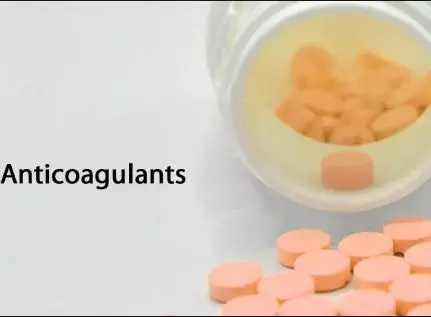- Home
- Medical news & Guidelines
- Anesthesiology
- Cardiology and CTVS
- Critical Care
- Dentistry
- Dermatology
- Diabetes and Endocrinology
- ENT
- Gastroenterology
- Medicine
- Nephrology
- Neurology
- Obstretics-Gynaecology
- Oncology
- Ophthalmology
- Orthopaedics
- Pediatrics-Neonatology
- Psychiatry
- Pulmonology
- Radiology
- Surgery
- Urology
- Laboratory Medicine
- Diet
- Nursing
- Paramedical
- Physiotherapy
- Health news
- Fact Check
- Bone Health Fact Check
- Brain Health Fact Check
- Cancer Related Fact Check
- Child Care Fact Check
- Dental and oral health fact check
- Diabetes and metabolic health fact check
- Diet and Nutrition Fact Check
- Eye and ENT Care Fact Check
- Fitness fact check
- Gut health fact check
- Heart health fact check
- Kidney health fact check
- Medical education fact check
- Men's health fact check
- Respiratory fact check
- Skin and hair care fact check
- Vaccine and Immunization fact check
- Women's health fact check
- AYUSH
- State News
- Andaman and Nicobar Islands
- Andhra Pradesh
- Arunachal Pradesh
- Assam
- Bihar
- Chandigarh
- Chattisgarh
- Dadra and Nagar Haveli
- Daman and Diu
- Delhi
- Goa
- Gujarat
- Haryana
- Himachal Pradesh
- Jammu & Kashmir
- Jharkhand
- Karnataka
- Kerala
- Ladakh
- Lakshadweep
- Madhya Pradesh
- Maharashtra
- Manipur
- Meghalaya
- Mizoram
- Nagaland
- Odisha
- Puducherry
- Punjab
- Rajasthan
- Sikkim
- Tamil Nadu
- Telangana
- Tripura
- Uttar Pradesh
- Uttrakhand
- West Bengal
- Medical Education
- Industry
DOACs effective alternative to Vitamin K Antagonists for LV thrombus: Study

A recent study has demonstrated no significant difference in SEE, major bleeding, or failure of LV thrombus resolution between the two groups, thus demonstrating that direct oral anticoagulants (DOACs) are an efficacious and safe alternative for the treatment of LV thrombus compared to Vitamin K Antagonists. Findings have been published in Journal of Cardiovascular Electrophysiology. .
Oral anticoagulation is effective in the prevention of ischemic stroke and systemic embolism in patients with atrial fibrillation (AF). Vitamin K antagonists (VKAs) inhibiting the production of several coagulation factors in the liver have been the only option for long‐term oral anticoagulation for many years. Direct oral anticoagulants (DOACs) including the thrombin inhibitor, dabigatran, and the factor Xa inhibitors, apixaban, edoxaban, and rivaroxaban, have been proven to be at least as effective in preventing ischemic stroke and systemic embolism in patients with AF while having a lower risk of symptomatic intracranial hemorrhage.
Though current guidelines currently recommend using warfarin, there is also a growing interest in the utilization of direct oral anticoagulants (DOACs) to treat left ventricular (LV) thrombus.
For the study design, Researchers performed a systematic search using PubMed, SCOPUS, EMBASE, Google Scholar, and ClinicalTrials.gov from inception to September 30, 2020, for studies that had reported outcomes in patients with left ventricular thrombus treated with DOACs (PROSPERO registration number CRD42020219761).
Data analysis revealed some interesting facts.
- Twelve studies (n = 867 patients) were included in the analysis.
- The pooled incidence of the systemic embolic events (SEE) with DOACs was 2.7%, whereas the thrombus resolution rate was 86.6%.
- The pooled incidence of overall bleeding (composite of major and minor bleeding) and major bleeding with DOACs were 5.6% and 1.1%, respectively.
- No significant difference was observed in terms of SEE (OR 0.81, 95% confidence interval [CI] 0.44–1.52, p = .54), major bleeding (OR 0.29, 95% CI 0.07–1.26, p = .24), and failure of LV thrombus resolution (OR 0.86, 95% CI 0.28–2.58, p = .68); whereas overall bleeding was significantly low in patients with LV thrombus treated with DOACs compared to vitamin K antagonists (VKAs) (OR 0.33, 95% CI 0.14–0.81, p = .02).
"However, further well‐designed prospective trials are needed to answer important clinical questions—optimal dosing/duration of DOACs and its safety in the background of antiplatelet therapy."the research team concluded.
For the full article follow the link: https://doi.org/10.1111/jce.15016
Primary source:Journal of Cardiovascular Electrophysiology.
Dr Satabdi Saha (BDS, MDS) is a practicing pediatric dentist with a keen interest in new medical researches and updates. She has completed her BDS from North Bengal Dental College ,Darjeeling. Then she went on to secure an ALL INDIA NEET PG rank and completed her MDS from the first dental college in the country – Dr R. Ahmed Dental College and Hospital. She is currently attached to The Marwari Relief Society Hospital as a consultant along with private practice of 2 years. She has published scientific papers in national and international journals. Her strong passion of sharing knowledge with the medical fraternity has motivated her to be a part of Medical Dialogues.
Dr Kamal Kant Kohli-MBBS, DTCD- a chest specialist with more than 30 years of practice and a flair for writing clinical articles, Dr Kamal Kant Kohli joined Medical Dialogues as a Chief Editor of Medical News. Besides writing articles, as an editor, he proofreads and verifies all the medical content published on Medical Dialogues including those coming from journals, studies,medical conferences,guidelines etc. Email: drkohli@medicaldialogues.in. Contact no. 011-43720751


